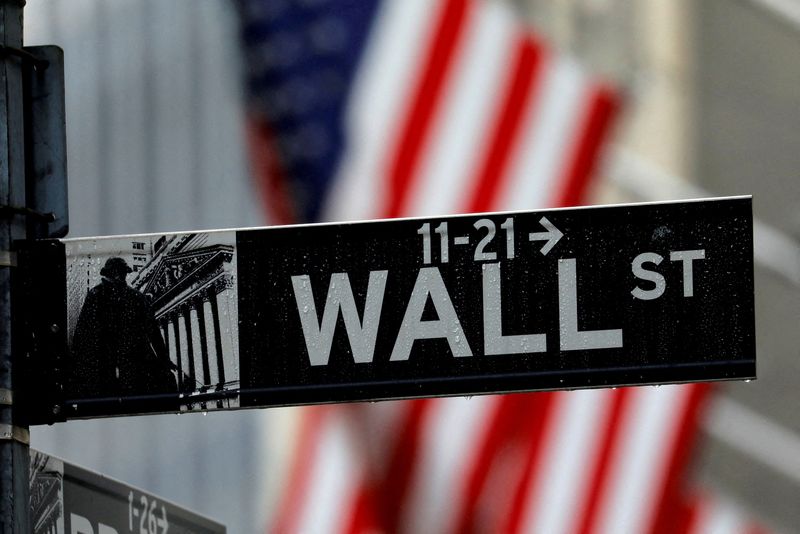CCH Holdings prices IPO at $4 per share on NASDAQ
By Noreen Burke
Investing.com -- Investors will be eyeing a deluge of earnings in the coming week, including reports from tech titans Apple, Microsoft, Amazon and Google parent Alphabet amid hopes that solid corporate earnings will bolster U.S. equity markets, which have been rocked by the Federal Reserve’s hawkish pivot. Meanwhile, both the U.S. and the Eurozone are to release preliminary data on first quarter growth along with what will be closely watched inflation readings. Here’s what you need to know to start your week.
- Big tech earnings
Almost 180 companies listed in the S&P 500, worth approximately half of the benchmark index's market value, are due to report results in the coming week, including the four largest U.S. companies by market capitalization: Apple (NASDAQ:AAPL), Microsoft (NASDAQ:MSFT), Amazon (NASDAQ:AMZN) and Google parent Alphabet (NASDAQ:GOOGL).
All four stocks have fallen so far this year, with Apple losing around 9%, Amazon down 13%, Alphabet dropping 17% and Microsoft off 18%.
First quarter earnings expectations are muted, and a selloff in Netflix (NASDAQ:NFLX) shares after the streaming giant reported falling subscriber numbers has exacerbated concerns about upcoming tech earnings.
“Expectations are low, but that doesn’t mean it’s not important," James Ragan, director of wealth management research at D.A. Davidson told Reuters. "If we are going to hit that 9% (earnings growth) for the year or even better than that, it’s hard to imagine we are going to do that without having better-than-expected earnings from the megacap companies.”
Among some of the other big names reporting during the week are Facebook (NASDAQ:FB) owner Meta Platforms, payment companies Visa (NYSE:V) and Mastercard (NYSE:MA), oil majors Chevron (NYSE:CVX) and Exxon Mobil (NYSE:XOM), and consumer companies Coca-Cola (NYSE:KO) and Pepsico (NASDAQ:PEP).
- U.S. economic data
Aside from earnings, data on U.S. economic growth and inflation will be in focus this week against a background of concerns over whether the Fed can engineer a soft landing for the economy as it acts aggressively to curb soaring inflation.
The U.S. is to release preliminary data on first quarter growth on Thursday with GDP expected to slow sharply to 1.1% from 6.9% in the final quarter of 2021 amid the effects of the Omicron wave of the pandemic at the start of the year.
The GDP data will be followed a day later by the personal consumer expenditures index, believed to the Fed’s preferred gauge of inflation.
Fed Chair Jerome Powell said last week a half-point interest rate increase "will be on the table" when the central bank meets on May 3-4, adding that investors expecting a series of half-point hikes were "reacting appropriately, generally," to the Fed's emerging fight against inflation.
The comments appeared to confirm an expected rate path much steeper than projected at the Fed’s last meeting in March.
The economic calendar also features updates on durable goods orders, CB consumer confidence, new home sales, pending home sales, initial jobless claims, the Chicago PMI and consumer sentiment.
- Stock market volatility
Wall Street's three main benchmarks ended in negative territory for the week on Friday, in what was the third straight week of losses for both the S&P 500 and the Nasdaq, while the Dow Jones Industrial Average posted its fourth weekly decline in a row.
Friday’s 2.82% drop in the Dow was its biggest one-day decline since October 2020.
Exaggerated trading swings have become more common recently, as traders adjust to new data points from earnings and amid concerns over the risks from more aggressive rate hikes by the Fed.
The CBOE Volatility index, also known as Wall Street's fear gauge, jumped on Friday, ending at its highest level since mid-March.
"It's not very common, over the course of my time doing this job, for the market to move 2% in either direction and to think 'there's not too much to read into that'," Craig Erlam, senior market analyst at OANDA told Reuters.
"That's not normal, but that's just how things have been for such a long time now."
- Eurozone data
The Eurozone is to publish data on first quarter GDP on Friday along with preliminary data on consumer price inflation for April, which is expected to come in at 7.4%, almost four times higher than the European Central Bank’s 2% target.
Last week ECB President Christine Lagarde said the bank is likely to end its bond purchase scheme early in the third quarter and raise rates before the end of the year to combat rising inflation.
But the war in Ukraine is clouding the picture for the ECB with resulting high energy prices and disruptions to supply chains caused by the pandemic and exacerbated by the war acting as a drag on growth.
- European earnings
European earnings get underway in earnest in the coming week and while companies are expected to have coped with higher inflation in the first quarter, investors will be keenly focused on their outlooks for the rest of the year.
More than 140 companies are due to report results over the course of the week, including consumer goods giant Unilever PLC (LON:ULVR), Nivea maker Beiersdorf (ETR:BEIG) along with leading banks UBS Group (SIX:UBSG), Deutsche Bank (ETR:DBKGn), HSBC (LON:HSBA) and Barclays (LON:BARC).
Kasper Elmgreen, head of equities at Amundi, expects first quarter results to be "okay" but is focused on price pressures and uncertainty resulting from the Ukraine crisis.
"It's super, super, super important for us to understand what are the abilities of the companies of passing on the cost increases onto the consumers," Elmgreen told Reuters.
"What are they going to say about pricing? What are they going to say about volume? What about mix margins? And can they say anything about the demand outlook?" he added.
--Reuters contributed to this report
